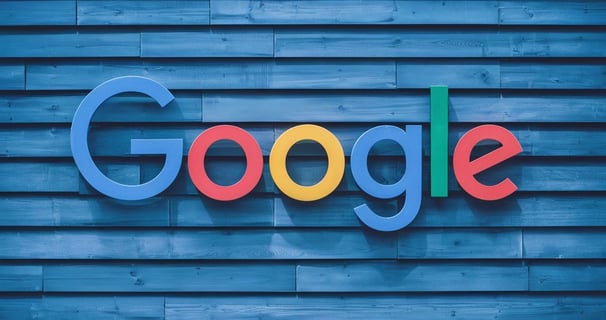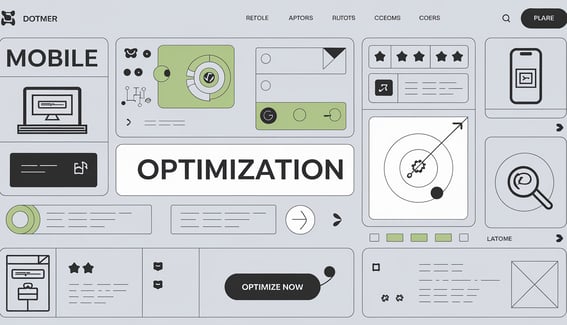10 Common SEO Mistakes You Need to Avoid
Avoid common SEO mistakes that can hurt your rankings. Learn the top SEO errors and how to fix them for better search engine performance.
Arafat Hossain Rafi
1/9/20254 min read


When it comes to improving your website's visibility on search engines, SEO (Search Engine Optimization) is key. However, many website owners make SEO mistakes that prevent them from ranking well. The good news is that these mistakes are easy to fix once you know what to look for. In this blog post, we will cover 10 common SEO mistakes that you need to avoid to ensure your website gets the attention it deserves. Let’s dive in!


Common SEO Mistakes You Should Avoid
1. Blocking Google from Crawling
One of the first SEO mistakes is blocking Google from crawling your website. Crawling is when Google reads your web pages and gathers information to show in search results. If your site is blocked, Google won’t be able to see it!
How to ensure Google can crawl your site?
Make sure your robots.txt file allows Google to crawl your website. This file tells Google’s bots what they can and cannot visit. Also, check your noindex tags to ensure no important pages are accidentally blocked.
2. Blocking Google from Indexing Your Pages
Blocking Google from indexing your pages is another big mistake. Even if Google crawls your website, if it cannot index your pages, they won’t appear in search results.
How to ensure Google can index your content?
To fix this, ensure that your pages don’t have the noindex tag. You can check this in your website’s HTML or use SEO tools to scan for errors. You want Google to index your important pages!


3. Ignoring Keyword Research
Keyword research is one of the most important parts of SEO. If you’re not using the right words, your website will not be found by your target audience.
How to do effective keyword research?
Use tools like Google Keyword Planner, Ahrefs, or SEMrush to find the most searched keywords in your niche. For example, instead of just using the word "fitness," try specific long-tail keywords like “best fitness coach for beginners.” This helps attract the right visitors.
4. Not Matching Search Intent
One of the biggest SEO mistakes is not matching search intent. People search on Google with a specific goal in mind. If your content doesn’t match what they’re looking for, you won’t rank well.
How to match user search intent?
To fix this, always consider search intent before creating content. Is the user looking for information, a product, or a service? Create content that satisfies the type of search intent, such as a blog post for informational searches or a landing page for transactional searches.


5. Having Too Few Backlinks
Backlinks (links from other websites to yours) are one of Google’s top ranking factors. Without enough backlinks, it’s harder to rank well.
How to build quality backlinks?
To get more backlinks, focus on creating high-quality content that others want to link to. You can also guest post on other blogs or ask other businesses to feature your website.
6. Buying Backlinks
Buying backlinks may seem like an easy way to improve your SEO, but it’s a risky move. Google can penalize your website if it detects that you’ve bought low-quality or spammy backlinks.
Why you should avoid buying backlinks?
Instead of buying links, focus on building natural backlinks through valuable content, guest posts, and outreach. A good backlink strategy takes time but pays off in the long run.


7. Treating SEO as a One-Time Job
Many people think that once they optimize their website, they can forget about SEO. However, SEO is an ongoing process.
How to keep SEO updated?
Regularly update your content, review your keyword strategy, and keep an eye on your competitors. Stay informed about SEO best practices to ensure your website keeps improving.
8. Overusing Keywords
It’s tempting to cram as many keywords as possible into your content to rank better. However, keyword stuffing will only hurt your rankings and make your content unreadable.
How to avoid keyword stuffing?
Focus on writing naturally and include keywords where they make sense. Google cares about quality content, not just keyword frequency. Use related keywords and synonyms to improve your content's readability.


9. Ignoring Mobile Optimization
With more people using smartphones and tablets, ignoring mobile optimization is a huge mistake. If your website doesn’t work well on mobile devices, you’ll lose a lot of visitors.
Why mobile optimization matters?
Make sure your website is responsive, meaning it adjusts automatically for any screen size. Use Google’s mobile-friendly test tool to check if your website is optimized for mobile users.


10. Not Optimizing Meta Tags
Meta tags (like your title tag and meta description) tell search engines and users what your page is about. If these are not optimized, your page might not show up in search results, or users may skip it.
How to improve meta titles and descriptions?
Ensure each page has a unique and descriptive title tag that includes relevant keywords. Also, write compelling meta descriptions that describe your content and encourage people to click.
Conclusion
Avoiding these SEO mistakes is the first step towards improving your website’s performance in search results. By ensuring Google can crawl and index your pages, doing proper keyword research, matching search intent, building quality backlinks, and keeping your website mobile-friendly, you'll see better rankings and more visitors. SEO is an ongoing process, so keep optimizing your website regularly and stay up to date with the latest trends.
By following this simple guide and avoiding common SEO mistakes, you’ll be well on your way to improving your site’s SEO and attracting more traffic.
